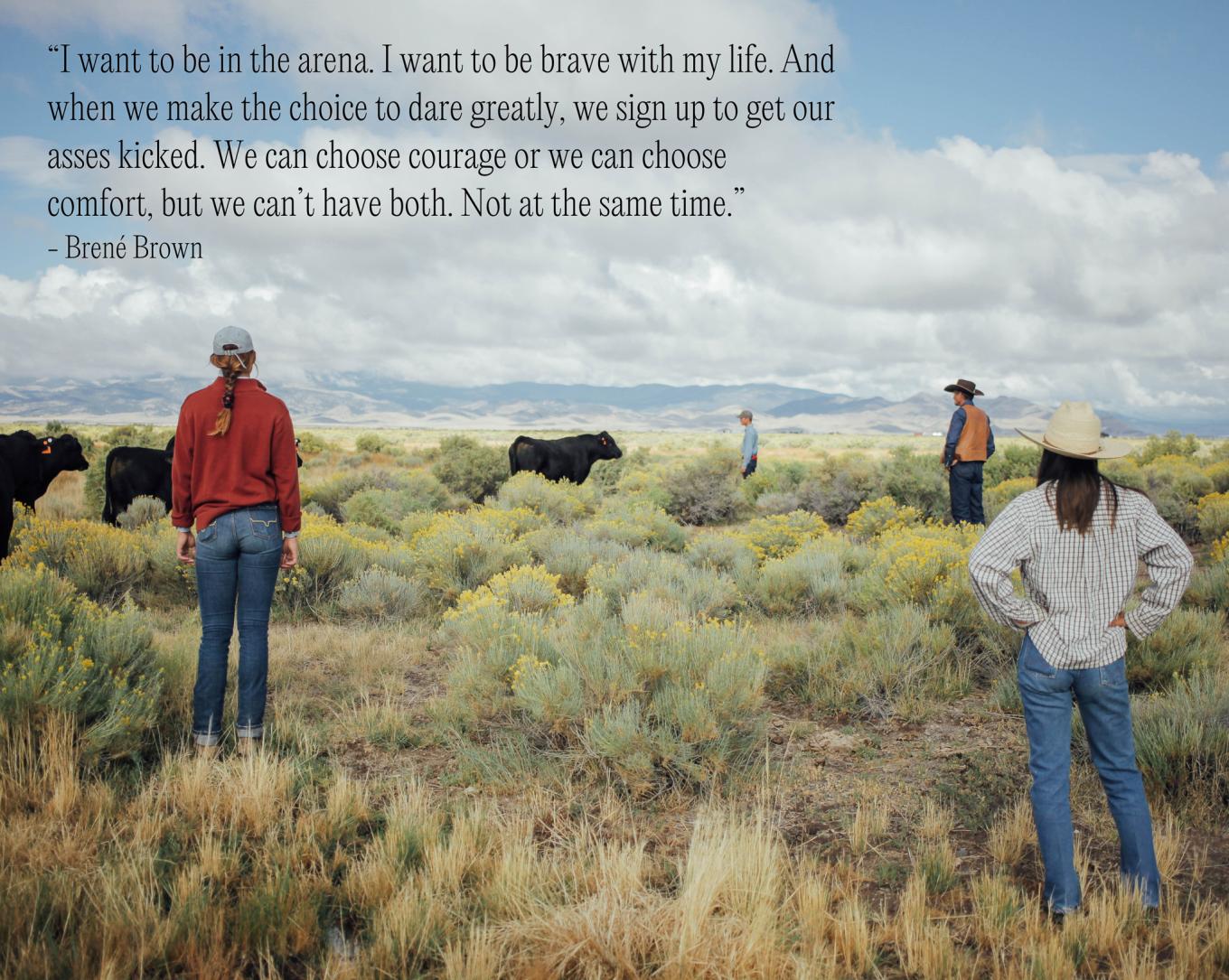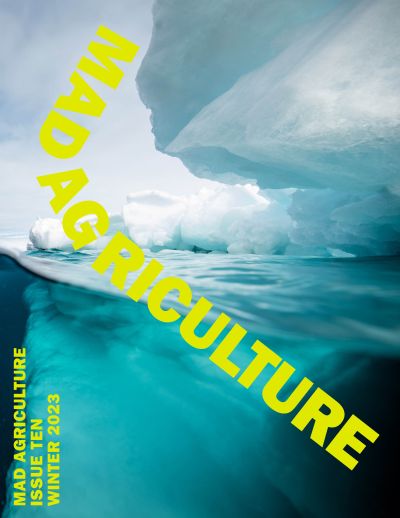
The Mad Agriculture Journal
Choosing Courage
Published on
January 26, 2024
Written by
Taylor Muglia
Photos by
Ryan Muglia
There I was, on a dirt road trying to drive straight on the washboard bumps, giving my rental Toyota Camry a generous paint job of dust, and I was sweatin’.
It was the summer of 2021, and I had just landed a new job at Quivira Coalition’s New Agrarian Program. My task for the first six months was to dive into the Colorado ranching community and find new ranchers to join our program as mentors. These experienced producers practicing regenerative agriculture would then get paired with beginning agrarians seeking experience in land stewardship and grazing, and they participate in an eight-month apprenticeship.
I had a fundamental understanding of ranching, but in hindsight, I was in way over my head. I’m a girl from the suburbs who fell into agriculture, and I mostly work with small livestock: pigs, sheep, chickens. The biggest ranch I ever worked for was 100 acres. Yet here I was, weaving and winding down the driveway of a ranch so big that it encompassed an entire watershed. I pulled up to the house, took a deep breath, and got out to meet my first rancher.
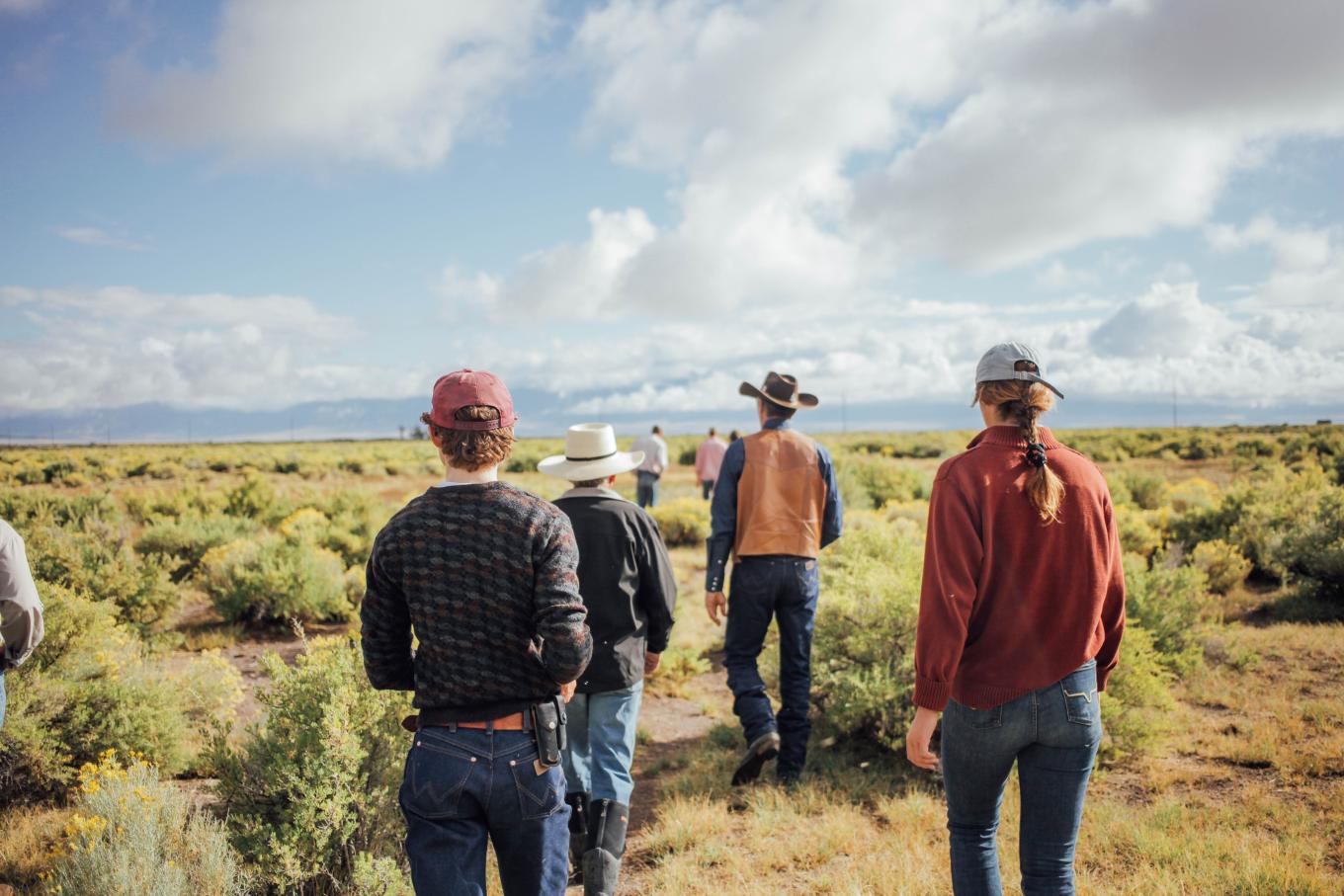
I stumbled through the conversations, asked a million questions, and hung on to words I’d Google when I got home. I pretended like I wasn’t intimidated until I wasn’t anymore. This is what I did, over and over. I’ve been from Kit Carson to Julesburg, Clark to Cotopaxi, sitting down with ranchers to hear their stories at a dinner table or in a UTV holding on for dear life.
At the end of the day, I always feel like I can generate courage because driving back down that driveway, I feel magic. Perhaps it’s the nausea from the UTV ride, but it feels extraordinary to me that a conversation might lead to a new mentor joining our program. This means that someone out there in Atlanta, Manhattan, or Toledo reading about regenerative ranching can have a chance at trying it with their own hands. In a society that pushes people away from land and their food, it feels like we are slowly turning a giant ship around. As Julie Sullivan, founder of the New Agrarian Program puts it, “We are changing the culture of agriculture,” engaging new people who otherwise wouldn’t have access.
Bringing a new mentor to our program is an accomplishment, but only the beginning of the work. When an apprentice starts in the spring, they not only bring energy and intense curiosity to their work, but often they are full of hope and excitement for where this might take them personally, who they might become. The thought of being a rancher in the West can evoke dreams of someone who is capable and confident. The idea of being an active agent of positive change but free of the woes of modern life, replacing the detestable images of cubicles and water coolers with saddles and sunsets, is endlessly alluring.
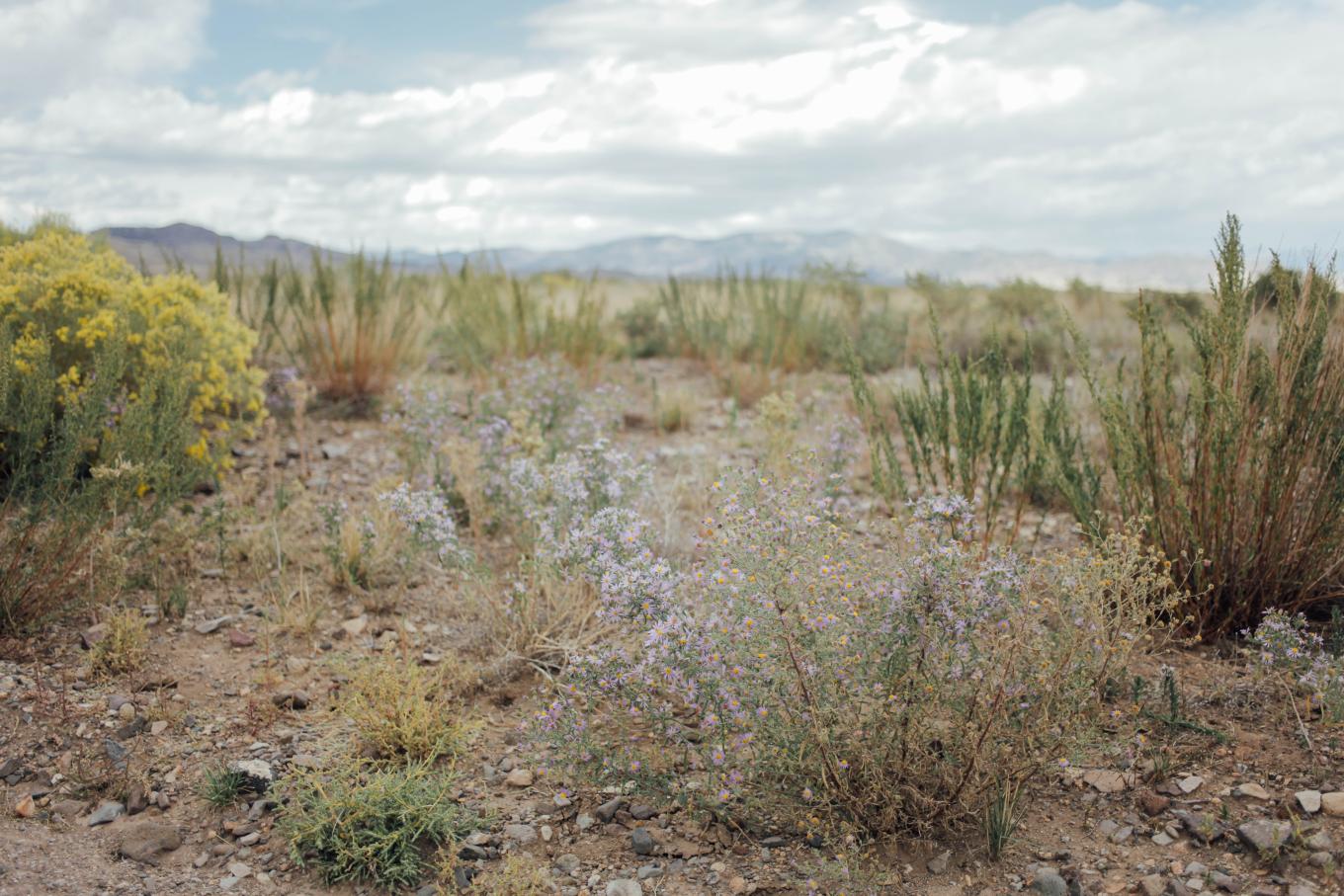
Then the summer hits. Days are long and hot, people are grumpy without warning, and the work demand is high. While I love to idealize bringing new people into agriculture, I also appreciate how messy it can be. So many things are clashing at the same time, internally and externally: cultures, ideals, lifestyles, communication styles, expectations. The daily work might not be like what they had imagined. To an apprentice, this is when thoughts like, I should just go home where things are safe and easy or I’m just not cut out for ranching crop up.
At the end of the season, the apprentices leave the program with a clear accomplishment: I did that. Often they don’t truly appreciate how much they’ve changed and grown from the experience, but I try to remind them that eight months prior, they may have never been around real live cattle, and by the end, they are moving herds of 2,000 head. They tend to dress differently, even talk differently, and they have a grasp on what ranching can look, feel, taste, smell, and sound like. On top of that, they often feel connected to other apprentices trying to find their way, too. They’re also connected to a whole community, one we celebrate with at their graduation at the annual REGENERATE conference in November.
While we can provide an entry point for each apprentice, the truth is that sustaining that momentum can be challenging. Almost everything about our current economy disincentivizes young people from continuing careers in ranching. The economics of it are challenging as-is, and feel almost insurmountable without inherited wealth, land, or capital. Climate change makes each season more unpredictable than the last, so producers have to be resilient, creative, and collaborative. Plus, rural communities are known for being tight-knit, with families and neighbors who look out for each other. And their isolation can perpetuate deeply-entrenched patterns — including ones based on histories of racism, colonialism, and sexism — that make it difficult for newcomers to fit in and choose to make this path their future.
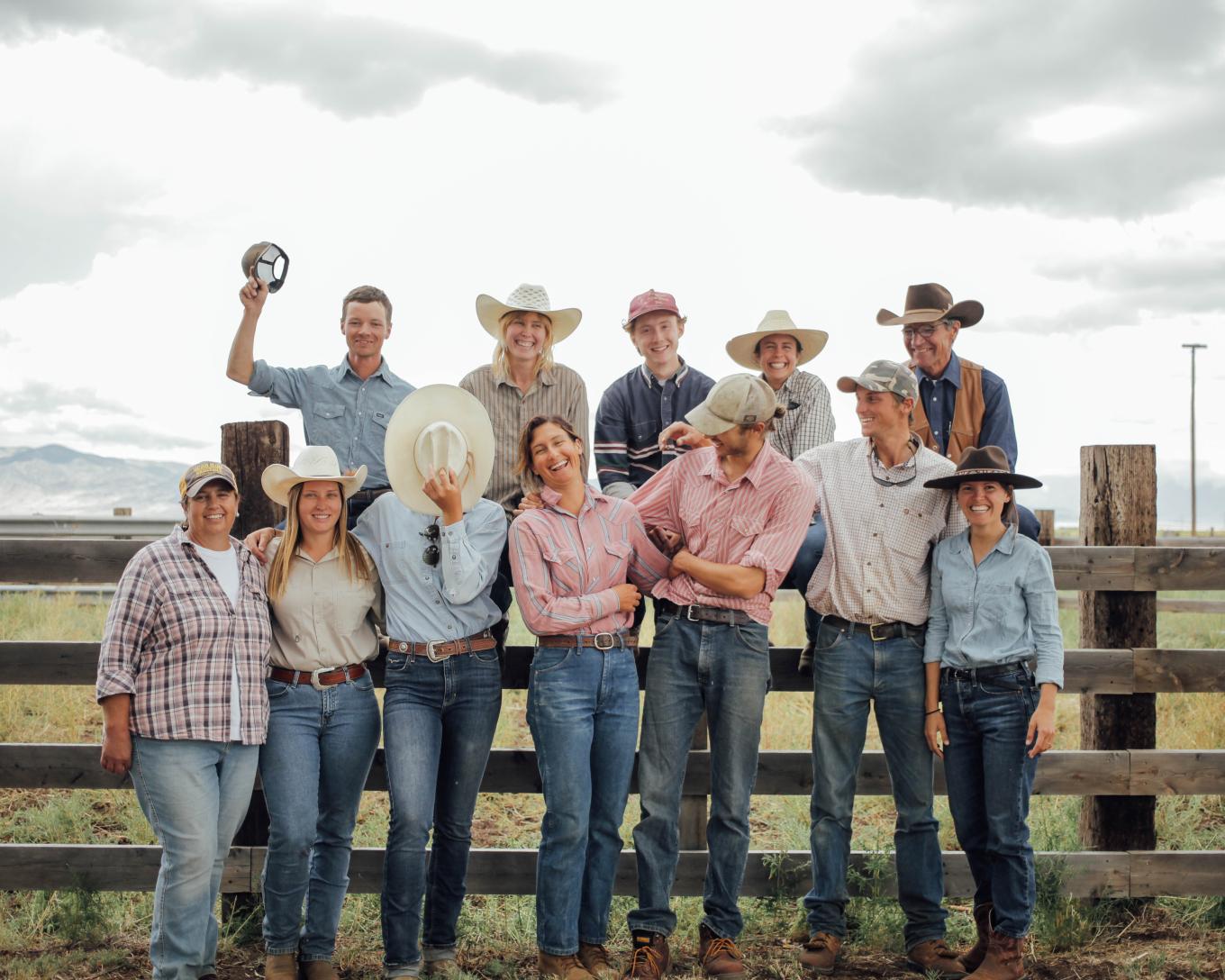
One must be courageous to start a life in agriculture. Showing up when you have no idea what you’re doing then experiencing all of the “firsts,” like roping a calf or patching a tire, takes grit. Over time, the courage becomes less of an acute act, but it’s more subtle: getting through the doldrums of summer, finding your place, dreaming of a life where you can have a healthy relationship with a partner, family, your community, and finances, while also stewarding land in a way that is resilient and regenerative. Without courage, we risk continuing the status quo, keeping the ship on its original course. When we end up in this mindset, there are consequences: loss of intergenerational knowledge, land getting sold to the highest bidder, food becoming more and more commodified, and a disconnection from the land. It takes courage to keep dreaming of a more equitable system, while not giving up on it altogether in the meantime.
Here’s to the apprentices and mentors who have participated in our program, as well as all the producers and supporters who continue to do what is right, in all of its creative forms, even though it’s not comfortable.
If you want to be a courageous mentor or apprentice in our program, find more information at quiviracoalition.org/newagrarian.
